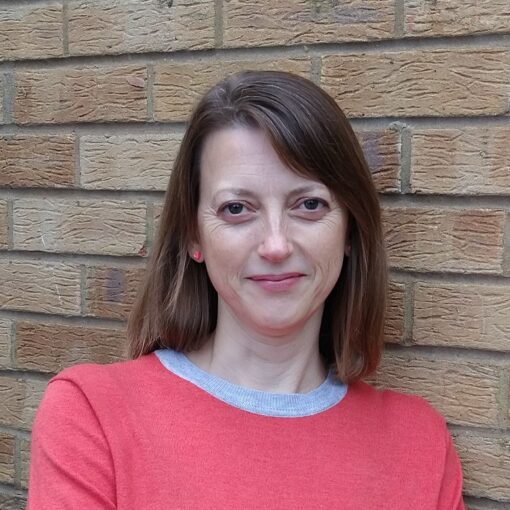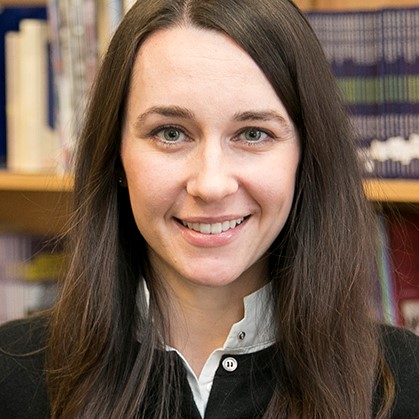PhD, Monash University
| Senior Manager, Education and Business Development | |
|---|---|
| Health Education Australia Limited | |
Year entered into a non-academic position: 2004
Job Highlight: Writing grants and proposals that lead to the establishment of new and innovative medical schools, hospitals, and programs to help people with a disability.
Left academia after: PhD
My research training set me up to: Ask and answer questions in an effective manner.
What’s your background?
I did a science degree called Bachelor of Science (Biomedical), honours, then a PhD. I was one of those people who just did the next easiest thing. That might sound odd, but to be honest it seemed easier to keep studying than to prepare a resumé and look for a job. I also came from a family of studiers (7 PhDs amongst 11 grandchildren), so doing a PhD was always likely. In addition, I stayed at the same institution for my whole education. I am still there now, although as a sporting club member.
Why did you move away from academia?
At the time, I did not see a connection between effort and outcome. I wanted to know that if I worked harder, put in more hours, I’d get better outcomes. That was (is) not the case. I also saw the grant treadmill people were on and I did not want to be part of that. However, I then went and established my own business. If you think grant money is hard, try writing proposals that go for 3 weeks or 3 months, rather than 3 years.
Is there anything you miss about academia?
Discovery. I loved knowing something no one else in the world knows. If anything could get me back to academia, that is it.
How did you get this job? Did you face any challenges when considering a move away from academia or applying for the role?
I got this job through networking, and that is the way most people get most jobs. My academic to non-academic move was easy. With my PhD, I got a non-academic job at a University – a place where they value PhDs. So, I did not need to convince anyone about its usefulness. Then, I quit that job to set up my own business. That was easy – until it wasn’t. As a PhD graduate you are trained that you can and should do anything and everything – largely to save money. In small business, that means you make less money because you end up building a website, or doing the accounting, or creating a marketing campaign, when you should actually be selling or delivering your product or service.
What motivated you to/why did you choose the sector you transitioned into?
I like the health and education sectors as I get a lot out of helping people. In health and education you do that often. A lot of my career has been related to health or education. So, it is a comfortable sector to work in for me.
Did you think you had the skills required for your current position before you started? Were you right?
No, I did not have the right skills. And, if you think you need the right skills or all of the skills to do the job you’ll never apply for a job. This is essentially why wrong candidates get hired – you’ll hire people who will soon be bored. Why hire someone if they have nothing to learn?
What I did have was the right attitude (I think so anyway) and the ability and willingness to learn what was necessary for success.
How did your PhD prepare you for your current job? For example, what were the transferable skills that you developed during your PhD that are most relevant to your current job?
I should acknowledge upfront that working in health education with a Dr title allows a lot of people to make an incorrect assumption – you are an MBBS graduate. And this is further reinforced by being a white male.
There is a long list of transferable skills starting from things like using MS Office suite. I have also introduced more detailed analysis of evaluations to the role as well as increased thoroughness of data collection. Both of those skills were learned in my PhD. Working in a small team requires lots of self-direction; again, a skill developed in my PhD. Similarly, everyone needs to know what you are doing, like working in a small lab, where you need to let your lab members know how your research is (or isn’t) progressing.
Did you have any preconceptions about your sector that proved to be wrong?
I’m sure I did and still do, but none immediately spring to mind.
Can you describe a typical week in your job?
Mondays tend to be full of meetings. There are organisation-wide meetings, sales meetings, operations meetings, though not all every week. Each week there is at least one, maybe two.
Tuesdays and Wednesdays (like Mondays) are in the office. This is when I tend to meet with, call, or email clients and potential clients, as well as reviewing the educational content we offer.
Thursdays and Fridays are work from home days. They tend to involve more report writing.
As Senior Manager of Education I need to ensure our education is functioning properly. So, if information becomes out of date, or links break, I need to fix those issues immediately.
As Senior Manager of Business Development I need to respond to market requirements for new courses as well as businesses (hospitals, government, community health) asking for training for large(r) groups of people.
What is the workplace culture like? Please include comments on work-life balance, flexibility, remote working?
There is the opportunity to work from home, and the days and times can change. Some times of the year or business cycle are harder than others to have those requests granted. Different people in the office keep different work hours (e.g. start late and finish late, start early and finish early). As technology has improved, flexibility has increased. For example, we recently switched from fixed phones to soft phones and now there is no need to have someone in the office from 9 a.m. to 5 p.m.
Do people with a PhD frequently get hired in the company/sector?
Yes. It is common for people in health and health education to have a PhD. Within the company (there are ten or so people) I am the only person with a PhD. A past predecessor was a professor. Having a PhD was not essential for obtaining the role. But, from what I understand, it was viewed as a benefit.
What are your favourite parts of your job?
Building new educational offerings which are effective, teaching people, and receiving good reviews.
What are your reflections on your career path?
Careers make sense looking backwards – you can join the dots from one job to the next – but not looking forwards. It is hard to predict what skills or types of experience will help you get the next role and do it well.
Do you have any advice for current graduate students and postdocs considering a career outside of academia?
Take the risk! The worst thing that can happen is you go back to academia with a (relative) wealth of industry experience – especially compared to your colleagues. The best thing that could happen is you find a full-filling career.
What do you know now that you wish you’d known when exploring a transition?
Nothing. Being naive to what was possible or not possible was the best situation to be in. Ignorance is bliss! I guess that means I did not (do not) feel limited by having a PhD. Nor did (do) I feel particularly advantaged. I applied for jobs that some people with a PhD might feel beneath them, or beyond them. In some cases I was outright rejected. In other cases I was interviewed. If you treat the transition like an experiment, then every application is another data point, not success or failure. And that kind of approach might work better for some people.
Can you recommend any relevant resources, organisations or events that might help somebody new to the sector find out more about it?
We run a range of webinars, as do other organisations. They are free to attend, in some cases. In other cases, they are paid. Those webinars will give you a sense of what we teach, but not what we do as workers.
But, as always, reach out to people and ask for opportunities to shadow, or buy them a coffee and talk about the role. If you don’t ask, you won’t get.





